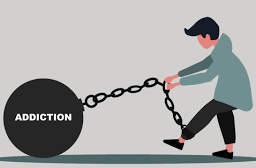
Navigating Depression: Symptoms, Causes and Effective Strategies
Embarking on a journey through the complexities of depression, this resource aims to shed light on the nuances of this pervasive mental health condition. Whether you’re grappling with the symptoms, seeking understanding, or navigating ways to manage it, join us in exploring the multifaceted aspects of depression. Together, let’s unravel the layers, find support, and empower ourselves with knowledge on this crucial mental health topic.

Depression can be a difficult and isolating battle. It is more than just feeling “down” – it is a mental health condition impacting millions of people every year. While depression can make daily tasks feel overwhelming, understanding more about its symptoms and causes can be empowering. Whether you are living with depression yourself or supporting someone who struggles with this condition, we invite you to join us on the journey to better understanding this complex illness.
Contents of this article include:
- Understanding Depression and its Causes
- Warning Signs of Depression to Look Out For
- How to Seek Professional Help for Depression
- Tips for Managing Depression Symptoms at Home
- Finding Support from Loved Ones and Friends
- Self-Care Strategies to Boost Mental Health
Understanding Depression and its Causes
Depression is a serious mental health condition that can affect anyone, regardless of age, gender, and background. It often involves constant feelings of sadness, anxiety, and loss of interest or pleasure in activities you once enjoyed. In severe cases, depression may lead to a range of physical issues such as eating disorders, chronic pain syndromes, cognitive decline – all making day-to-day life difficult. While everyone feels down from time to time, when depression persists it becomes an illness with complex causes. These include biological components like changes in our physiology and genetics; environmental factors such as trauma or social isolation; and psychological reasons such as persistent negative thinking patterns and distorted views of ourselves or the world around us. The exact causes vary from person to person and need to be explored so that effective treatments can be prescribed for maximum impact.
Warning Signs of Depression to Look Out For
Many people don’t realize that depression can manifest itself in numerous ways. Changes in emotions, physical health and behavior can be warning signs of depression. Common emotional warning signs include feeling persistently sad, irritable, helpless or guilty, not enjoying activities once enjoyed and experiencing a sudden lack of interest in meaningful relationships. Physical warning signs can include changes in sleeping habits – either sleeping more or less than usual – changes to appetite, fatigue, lack of energy and restlessness. Finally, possible behavioral warning signs include increased use of alcohol or drugs, social withdrawal and a lack of response to pleasurable activities. It is important to recognize these symptoms since they could indicate a serious underlying issue such as depression that needs immediate attention.
How to Seek Professional Help for Depression
If you’re struggling with depression, seeking professional help can be a great way to work through it. There are many qualified individuals who specialize in mental health and can provide solutions that best fit your situation. Most mental health experts offer virtual therapy sessions which make the process of getting professional help extremely convenient. Psychologists and counselors can provide resources for medication, counseling, or both depending on what works best for you. Furthermore, they may also refer you to certain lifestyle changes such as exercise or diet amendment if necessary to promote positive well-being. Ultimately, taking a proactive approach towards seeking professional guidance is key when dealing with depression. Don’t hesitate to reach out today and make the first step towards healing!
Tips for Managing Depression Symptoms at Home
Managing depression can be overwhelming and trying to seek treatment may not always be feasible. Thankfully, there are many strategies that can help you manage symptoms of depression while at home. Firstly, taking steps to ensure your mental and physical health is up-kept. This could include engaging in consistent exercise, getting adequate amounts of sleep, and having a healthy and balanced diet—all of which provide numerous health benefits as well as aid in managing symptoms of depression. Secondly, challenging yourself to think positively and engage in activities or hobbies that bring enjoyment, such as listening to music or playing sports. Steering away from negative self-talk patterns towards developing more self-compassion is also beneficial. Lastly, connecting with those around you and seeking support from family and friends as well as online communities is key for managing depression effectively.
Finding Support from Loved Ones and Friends
When dealing with a difficult personal situation, it’s essential to have a support network of loved ones and friends. These people are invaluable for helping us express our feelings, offering advice, and providing reminders that we’re not alone. Whether we’re facing a physical, emotional, or mental challenge, having others who can give us understanding and compassionate listening can make a world of difference in helping us cope and healing. Finding these people doesn’t have to be complicated: they might be members of our family or friends from school or work who’ve gone through a similar process before. However, we assemble this network of supporters, being able to lean on them instead of internalizing struggles can make all the difference in how we approach our challenges.
Self-Care Strategies to Boost Mental Health
Taking care of yourself is a vital part of improving your mental health. Doing simple activities every day can have a major impact on your overall wellbeing. Some self-care strategies include dedicating time to relaxation, physical exercise, social interaction, journaling and mindfulness practices such as meditation. Incorporating these activities into your schedule helps to decrease feelings of stress, anxiety and other mental health challenges. You may also want to focus on eating balanced, nutrient-rich meals and getting enough sleep for additional energy and clarity of thought. Everyone’s needs are different so it is important to experiment with different strategies to see which methods work best for you. With commitment and patience, engaging in regular self-care practices can be very rewarding in the long run.
Depression can be a difficult and overwhelming challenge to face, but it’s important to remember that there is help available. Through professional treatment, self-care strategies, support from your loved ones and friends, as well as ongoing education about the causes of depression, it is possible to find the strength and courage you need to manage your symptoms. Reach out for help if you feel like you need it – whether it’s a friend or a medical professional – and know that by taking on this challenge headfirst, you are one step closer to creating a more positive and healthy mental state for yourself. Be patient with yourself throughout the process; after all, every journey begins with a single first step.
Depression can be a difficult and isolating battle. It is more than just feeling “down” – it is a mental health condition impacting millions of people every year. While depression can make daily tasks feel overwhelming, understanding more about its symptoms and causes can be empowering. Whether you are living with depression yourself or supporting someone who struggles with this condition, we invite you to join us on the journey to better understanding this complex illness.
Disclaimer: The information provided in this content is for general informational purposes only. It is not intended as medical or healthcare advice, diagnosis, or treatment. Always seek the advice of a qualified healthcare professional with any questions you may have regarding a medical condition or healthcare decisions.




